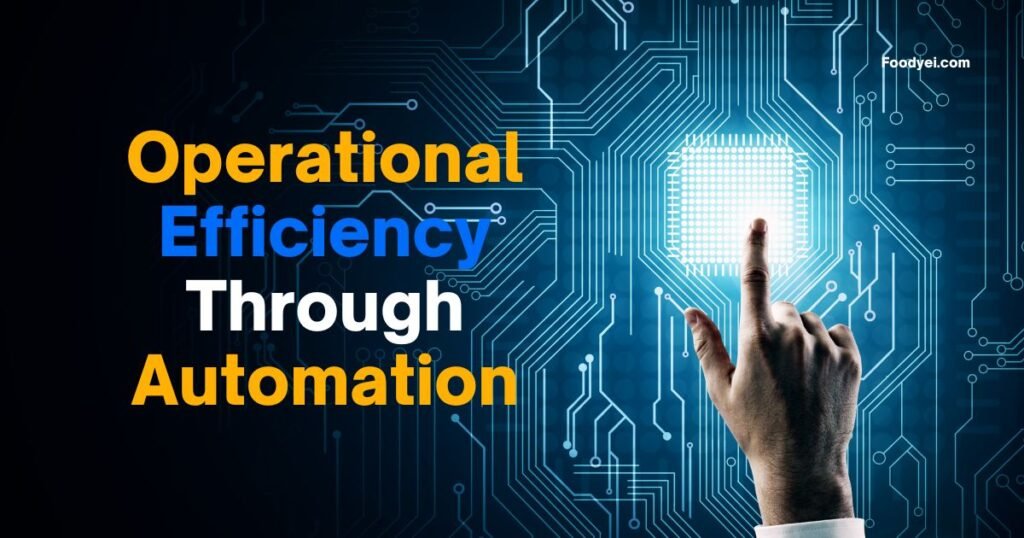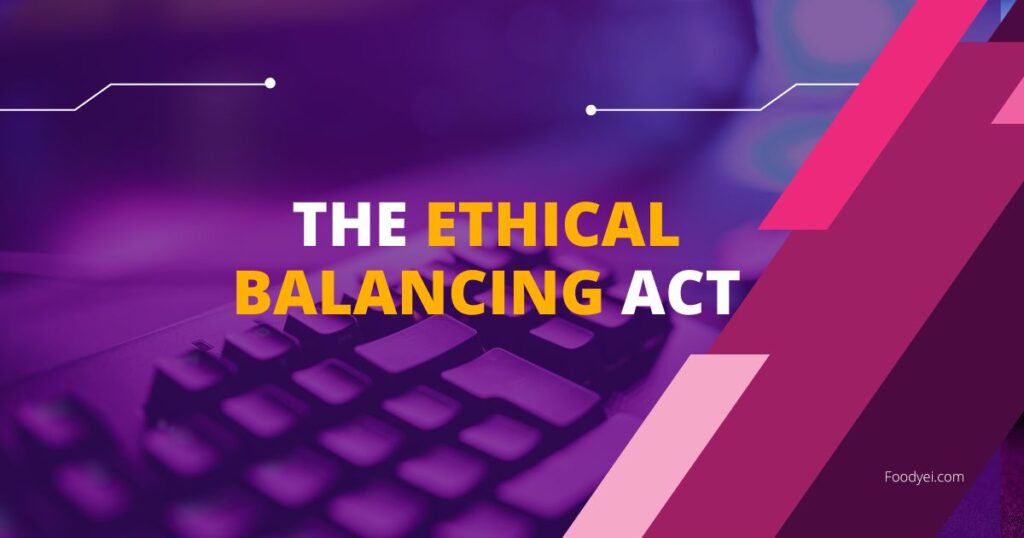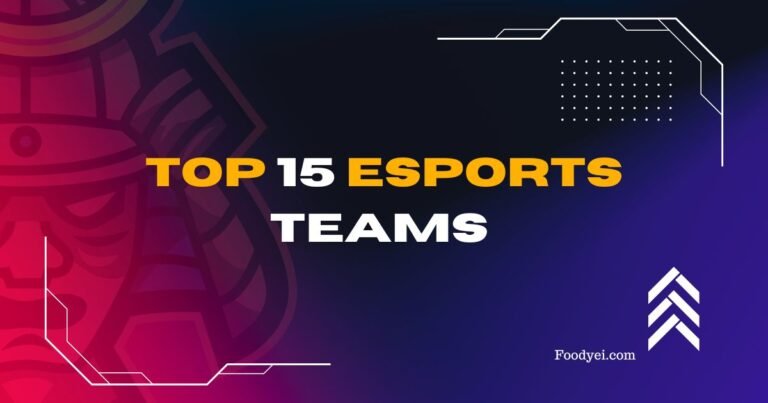While often seen as spaces for elite human competition, the esports environment increasingly leverages artificial intelligence in esports to enhance performance, strategy, broadcasting, health, and overall ecosystem efficiency. As in most technology domains, AI promises to transform competitive gaming from the back end to player and fan experiences.
Natural synergies exist between esports and AI, with both relying on advanced software and data-driven insights. Exploring current and prospective applications provides perspective on how machine learning will shape gaming’s future. While still early, AI has huge potential to optimize play, augment analysis, streamline operations, and enrich engagement for participants and spectators.
This article surveys the budding integration of artificial intelligence across the esports landscape – where deployed today, prospects on the horizon, and how AI may bolster gaming as both recreation and profession.
Gameplay Improvement and Optimization
One primary use of AI involves improving gameplay mechanics, experiences, and progression:
Dynamic difficulty – Using machine learning algorithms to tailor game challenges to player skill levels in real-time keeps experiences engaging without excessive difficulty spikes.
Bot training partners – AI-driven bots serve as customizable sparring partners for practice by simulating human reflexes, behaviors, and playstyles. This helps hone skills.
Cheat detection – Algorithms monitor gameplay metrics like inputs to flag statistically anomalous behaviors indicative of cheating software or exploits. This bolsters esports integrity.
Analytics-based balancing – Telemetry data powers models assessing hardware performance, faction balance, map advantages, etc. to guide prudent gameplay tuning and quality improvement.
Coaching tools – AI can provide post-game feedback on errors, suggest skill progression paths, highlight weak areas, and relate performance to benchmarks to help players systematically improve.
Leveraging AI for gameplay applications creates more satisfying, meaningful and fair experiences benefiting all players from casual to professional.
Enhanced Broadcasting and Storytelling
For audiences, AI augmentation aims to create more engaging broadcasts:

Auto camera control – Directing algorithms drive dynamic spectating by identifying areas of action and interest based on gameplay data and statistics. This automates optimal scene framing.
Highlight reels – ML evaluates player performances across matches to automatically generate compilations of key moments like skilled plays and pivotal decisions for clipped replay content.
Caster augmentation – Algorithms generate and surface relevant stats and visuals in real-time to human commentators and analyzers, improving contextual insights into unfolding matches.
Interactive demos – AI code profiles player styles through past matches to offer interactive on-demand replays where viewers control perspectives, pacing, and replay parameters. This allows for studying tactics.
Personalization – Smart recommendation algorithms queue up tailored highlight reels, match replays, and interactive demos based on viewer preferences and observed behaviors.
Applied thoughtfully, AI expands viewing possibilities to make broadcasts more immersive and responsive.
Player Health and Performance Optimization
For athletes, AI and machine learning aid:
Fitness tracking – Wearables monitor physical exertion, heart rate, sleep quality, and other biomarkers. This quantifies training strains and optimizes conditioning approaches.
Injury risk modeling – Collecting ergonomic, posture, and usage data allows for predicting likely injury patterns based on gaming motions and habits. Preventive adjustments follow.
Cognitive analytics – Neuropsych evaluations and behavioral modeling identify perceptual, cognitive, and emotional strengths and weaknesses shaping individual play. This allows personalized training.
Multi-modal analytics – Unifying gameplay metrics, video, health data, and hardware logs provides complete performance context to tailor training, surface patterns, and predict results.
Nutrition planning – Algorithms generate data-optimized diets, hydration, and supplementation recommendations attuned to individual needs and training regimens for peak performance.
Deploying machine learning in the service of athlete well-being and competitive optimization helps responsibly elevate human play.
Operational Efficiency Through Automation
For enterprise gaming functions, AI efficiencies include:

Business analytics – Quantifying fan preferences and forecasting viewership for planning via sentiment analysis, predictive modeling, and consumer behavior tracking.
Ad targeting – Analyzing user demographics and content affinities allows serving personalized, high click-through esports ads to relevant audiences.
Security enhancement – Flagging anomalies in account activity, trade patterns, and in-game behaviors provides an early warning against cheating, fraud, and theft.
Chat moderation – Natural language models and content classifiers automate moderation across gaming forums, chats, and streams – filtering toxicity and abuse.
Process automation – Bots handle high-volume administrative tasks like tournament registration management, merchandise logistics, and billing operations to optimize workflows.
Applied ethically, AI and ML meaningfully enhance business processes and workflows around competitive gaming and broadcasting.
Simulating Human Play Through AI
Looking farther ahead, simulating human esports play via AI presents fascinating possibilities:
Playable AI personas – Using generative adversarial networks, unique AI gamer profiles could be synthesized with distinctive playstyles and skill ranges for in-game competition or cooperative play when human sparring partners are unavailable.
Game testing automation – Rather than manual QA, AIs can autonomously playtest games at accelerated rates and across combinatorial scenarios, surfacing flaws through massively parallel experimentation.
Recreating historic matches – Given sufficient past game data, machine learning models may recreate the play strategies and decision-making of elite humans or teams in simulated versions of iconic showdowns.
Agent-based esports – In the long-term, AI agents refined over years through self-play could compete at the highest echelons of certain games given pure computational proficiency exceeding human limits in some regards.
Pushing these frontiers poses intriguing AI research challenges with benefits for both players and designers.
The Ethical Balancing Act
However, responsible limits exist around using AI in human competitive domains:

- Preserving fair play and authentic human competition rather than introducing predictive or mechanical advantages.
- Augmenting gameplay and training rather than replacing the joys of creativity.
- Transparently conveying limitations of AI systems to avoid over-reliance on algorithmic guidance.
- Avoiding the exploitation of player data and insights without consent.
- Considering long-term implications and risks holistically for all stakeholders.
Gaming culture resists unfair play and opaque algorithms threatening agency. Proactive ethics and equitable design prevent misuse.
AI’s Role in Gaming’s Evolution
Looking holistically, thoughtfully integrating artificial intelligence across esports promises to:
- Elevate excellence by optimizing performance and unlocking data-driven insights.
- Create richer experiences personalized to diverse participant needs and interests.
- Unburden repetitive tasks and administrative upkeep through automation.
- Provide new modes of competition, collaboration, and creative possibility.
- Strengthen sustainability by improving safety and accessibility.
Yet core appeal remains driven by the very human elements of mastery, teamwork, skill expression, and interactive community. AI supports this richness rather than detracting.
Competitive gaming environments continually push boundaries. Incorporating AI responsibly promises to keep propelling esports innovation into the future. But human purpose and enjoyment stay centered.
Frequently Asked Questions About Artificial Intelligence in Esports
How might AI coaching systems actually train players?
Likely through automated post-match analysis, personalized drill recommendations, adaptive training modes against AI opponents, and statistics benchmarking performance against past levels.
Will simulated human AI competitors ever play at professional levels?
While possible in narrow games, more dynamic titles will challenge AI for years to come. But agent capabilities will likely improve steadily, even if pure gameplay surpasses human ceilings.
What are the risks of using AI for automated game testing?
Careful design is needed to avoid blindspots from testing patterns shaped by AI biases rather than true human use cases. AI supports but doesn’t replace human QA insights.
Can AI analytics improve viewership experiences?
Absolutely – surfacing contextual real-time stats and data, automated highlights of key moments, and personalized curation of matches all allow more engaged spectating.
How could AI coaching tools refine player development?
By filling knowledge gaps between peers and coaches through continuous personalized feedback, diagnostics of weaknesses, and data-optimized improvement recommendations tailored to individuals’ strengths.




